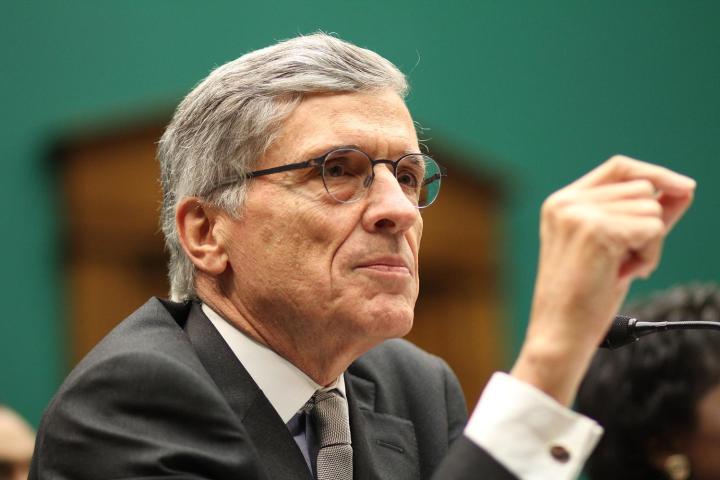
Wheeler stated earlier that the commission’s decision on Net neutrality wasn’t influenced by President Barack Obama’s move to throw his weight behind the Title II approach. He justified many of the new rules and vaguely expalined how the FCC will ensure that there’s no paid prioritization or other unfair Internet practices. He said that the FCC will not act as regulators, but rather referees.
“We do not regulate the Internet. That’s not what we do. We remain steadfast.”
“We do not regulate the Internet,” he said. “That’s not what we do. We remain steadfast.”
When questioned on some of the more etherial parts of the rules, Wheeler hedged and said that most rulings will be made on a “case by case” basis. One of the aspects of the ruling that has caused concern is what qualifies as reasonable network maintenance. Some folks worry that broadband providers will use that as an excuse to shut down or slow down Internet traffic from certain sites or companies, as has been done in the past. Wheeler wasn’t very specific, but he did say the FCC will consider each case carefully to make sure the Internet stays open.
When it comes to spectrum, Wheeler said that the FCC will try a new approach to make auctions more fair and ensure that spectrum is distributed more fairly. The new approach is called an incentive auction, and it will take place in the first quarter of 2016. The FCC will buy 600MHz spectrum from broadcasters and repackage it for carriers to distribute it more equally and keep costs down for carriers.
Since spectrum is extremely limited, Wheeler envisions a day when spectrum will be shared instead of bought and owned outright by one provider.
“The beauty of digital is that you can share a chunk of spectrum like you can’t do on analog,” Wheeler said. He also dismissed China’s approach of allowing the government to hand out spectrum to everyone equally to ensure that even rural areas are covered by 4G Internet connections.
Speaking about the incentive auction, Wheeler said that “the goal is to be able to get a fair price,” and still offer “a fair return for broadcasters” and carriers, adding that “if there’s money that’s made in the process, that’s good, but that’s not the goal.”
In conclusion, Wheeler said that an open and free Internet and fair spectrum auctions are the key to the future of communications in the U.S. and the world.
“We’ve got to have sufficient spectrum because it’s the pathway to the future,” Wheeler said. “It has to be open and competitive.”




